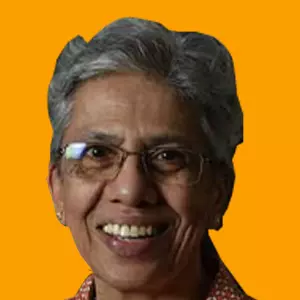
- Home
- India
- World
- Premium
- THE FEDERAL SPECIAL
- Analysis
- States
- Perspective
- Videos
- Sports
- Education
- Entertainment
- Elections
- Features
- Health
- Business
- Series
- In memoriam: Sheikh Mujibur Rahman
- Bishnoi's Men
- NEET TANGLE
- Economy Series
- Earth Day
- Kashmir’s Frozen Turbulence
- India@75
- The legend of Ramjanmabhoomi
- Liberalisation@30
- How to tame a dragon
- Celebrating biodiversity
- Farm Matters
- 50 days of solitude
- Bringing Migrants Home
- Budget 2020
- Jharkhand Votes
- The Federal Investigates
- The Federal Impact
- Vanishing Sand
- Gandhi @ 150
- Andhra Today
- Field report
- Operation Gulmarg
- Pandemic @1 Mn in India
- The Federal Year-End
- The Zero Year
- Science
- Brand studio
- Newsletter
- Elections 2024
- Events
- Home
- IndiaIndia
- World
- Analysis
- StatesStates
- PerspectivePerspective
- VideosVideos
- Sports
- Education
- Entertainment
- ElectionsElections
- Features
- Health
- BusinessBusiness
- Premium
- Loading...
Premium - Events

While ‘newsworthy’ persons with disabilities are extolled in media, nobody cheers for the millions of others who go about their daily lives overcoming the myriad obstacles in their path
Disability, a topic the media brings up sporadically, made front page news recently. And it wasn’t even December yet! Coverage usually surfaces on December 3, the International Day of Persons with Disabilities. But India’s performance in the Paris Paralympics demanded media attention. With 29 medals of every metal under ‘our’ collective belt, ‘we’ had something to crow about.
When did ‘they’ become ‘we’? The disabled population in India is usually ‘othered’ by the larger society, rendered invisible or viewed as ‘them’. But the achievements of disabled champions are immediately claimed by all, just as a cricketing World Cup victory becomes a collective one.
Debate over ‘D’ word
FYI, ‘disabled’ is not a dirty word. Many disabled persons have had enough of society pussyfooting around the word and substituting it with exaggeratedly polite expressions such as ‘specially abled’ (fortunately, ‘challenged’ seems to have vanished). The most ludicrous term is ‘differently abled’, which is meaningless since we all have different abilities: my abilities are different from yours which are different from those of every other person on the planet. If you’re too timid to utter the ‘D’ word you could always use the acceptable ‘Persons with Disabilities’. But if you asked the disability community, they would bluntly tell you: “We are disabled because we live in a disabling environment.”
Objectification of the disabled
Even as I write from the perspective of a non-disabled person, I know all too well that this may change any day. A disability is simply a condition that limits one’s ability to perform typical daily activities and interact with the outside world. Even if an illness or a surgery doesn’t leave me with a temporary disability, sheer old age could disable me permanently. That goes for ‘abled’ you too.
Another word that irritates disabled persons is ‘inspirational’. Medals are no doubt worth celebrating, but not so every activity they can perform “despite their disability”. Australian comedian Stella Young coined a scathing term for this: ‘inspiration porn’. She defines it as “objectifying disabled people for the sake of non-disabled people”. She wrote: “I want to live in a world where we don’t have such low expectations of disabled people that we are congratulated for getting out of bed in the morning and remembering our own name.”
Quality not disability should be the parameter
The media, always on the lookout for ‘inspirational’ stories, pounces on any person who paints with their foot because they have no arms, or with their mouth because they have quadriplegia. But do you know there is a multitude of such persons who have formed a global group: the International Mouth and Foot Painting Artists (IMFPA) which has an India wing as well? Are you going to profile each and every one of them? And should we judge such artists by the extent of their disability or the quality of their art? Because the former option reeks of condescension.
Incidentally, the human body is a highly adaptable organism and what it lacks in one part it is willing to make up for in another. For instance, the superior hearing ability of the blind has been scientifically proven. But that doesn’t mean a certain ability or skill of a disabled person should be held up as a model for other disabled persons to follow, implying they are worthless if they can’t follow suit.
Millions fight silent battles
While ‘newsworthy’ persons with disabilities are extolled in the media, nobody cheers for the millions of disabled persons in India who go about their daily lives overcoming the myriad obstacles in their path. A mother in Port Blair is gratified that her 13-year-old child is able to write from A to E in capitals. A woman in Amritsar is overjoyed that her 12-year-old granddaughter is able to pronounce her own name. Cause for mighty celebrations, indeed, although they remain private. These children and their caregivers seek no medals, they don’t think of themselves as heroes.
When a man in Janjgiri village says as a child he used to crawl 5 km to school, do we call him a hero, or do we point out how inaccessible most regions of our country are to the disabled? Even our metros (barring the nation’s capital) miserably fall short. A photo of someone carrying a disabled person on their shoulders to the polling booth is touted as a victory for democracy, not as a denial of individual rights. An urban wheelchair user who did have access to a polling booth started an online petition because she was forced to vote for the wrong person in the recent elections. Her chosen candidate’s name was too high up on the screen for her to reach, so she deliberately voted for the bottommost name as an act of protest.
Invisible disabilities
People generally are aware only of those disabled persons who display a visible impairment of movement, or atypical patterns of behaviour. Invisible disabilities are a closed book to most people. One cannot imagine the excruciating struggle a person with bipolar disorder or clinical depression goes through just to get through an ordinary day, performing a delicate balancing act between medication and willpower. Of course there is World Mental Health Day to remind us they exist!
It is time the media covered disability more frequently and extensively. And not just on December 3.
(The Federal seeks to present views and opinions from all sides of the spectrum. The information, ideas or opinions in the articles are of the author and do not necessarily reflect the views of The Federal)


